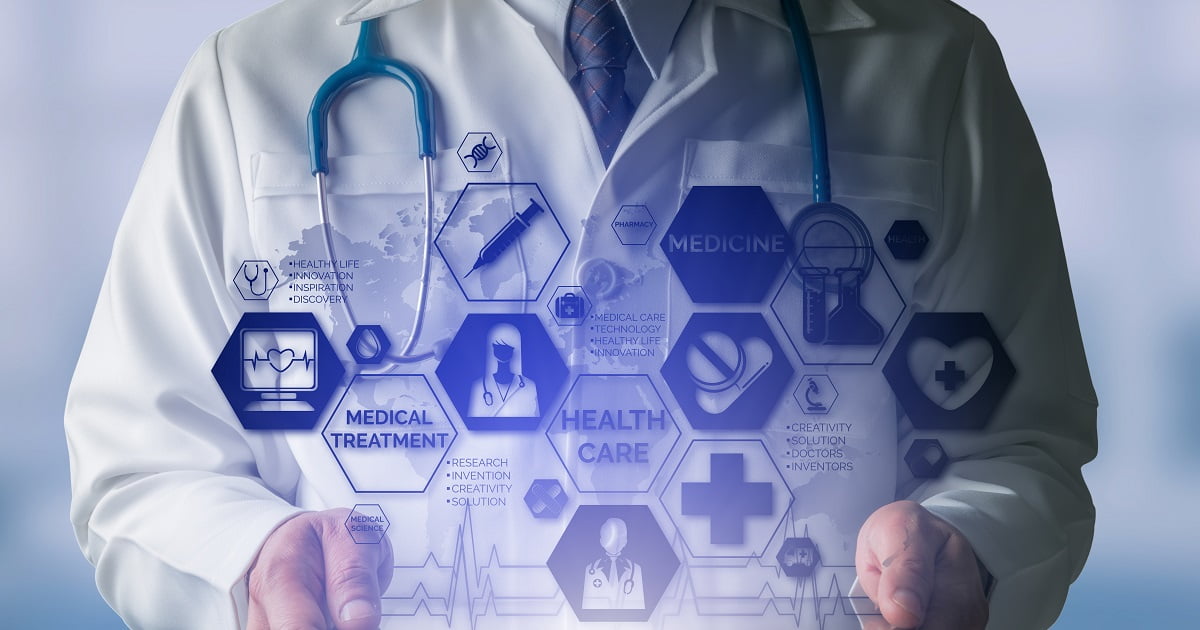
Health Technology, Digital Healthcare
Article | September 7, 2023
Explore a curated collection of EHR books while discovering the potential of exploring electronic health records books, empowering individuals to navigate complexities and make informed decisions.
Electronic health records (EHRs) have revolutionized the healthcare industry, streamlining patient data management and transforming how medical information is accessed, stored, and shared. A carefully curated list of essential EHR books can be an invaluable resource for healthcare professionals looking to expand their knowledge and expertise in this rapidly-evolving field.
Explore these electronic health records books that deepen insights and help navigate the intricate world of healthcare:
1. Connected for Health
Editor: Louise L. Liang
‘Connected for Health: Using Electronic Health Records to Transform Care Delivery’ explores the implementation of the world's most extensive non-governmental electronic health record system. The book delves into the far-reaching impact of this system on patient care outcomes, operational efficiency, safety, and patient engagement. Louise L. Liang draws upon valuable insights and lessons learned from the successful deployment strategy, showcasing how these technological tools are revolutionizing healthcare delivery and reshaping the organizational culture within the industry. This comprehensive resource sheds light on the transformative potential of electronic health records, offering a glimpse into the future of connected healthcare and its potential to improve patient experiences and drive positive change within healthcare organizations globally.
2. Hacking Healthcare
Authors: Fred Trotter and David Uhlman
‘Hacking Healthcare: A Guide to Standards, Workflows, and Meaningful Use’ is a concise and insightful book that critically evaluates the US healthcare system's adoption of electronic health records (EHRs) and other IT solutions to meet the government's meaningful use requirements. While acknowledging the tremendous opportunities for IT professionals, it also highlights the significant challenges of overhauling outdated record systems, workflows, and practices. EHR books, such as this one, provide a comprehensive overview by examining the unique characteristics of healthcare settings, exploring the complexities of transitioning from paper to digital records, analyzing billing and payment systems, emphasizing patient engagement through EHRs, and addressing the critical issue of avoidable errors.
3. The Innovator's Prescription
Authors: Clayton M. Christensen, Jerome H. Grossman, and Jason Hwang
‘Innovator's Prescription: A Disruptive Solution for Health Care’ presents a visionary prescription for reforming the ailing healthcare system. The book applies the principles of disruptive innovation to revolutionize the broken healthcare system. It identifies and addresses various symptoms, offering proven solutions that will improve the affordability and quality of healthcare. The book explores how precision medicine can reduce costs and deliver personalized care, how disruptive business models can enhance accessibility, affordability as well as quality, and how patient networks can improve the treatment of chronic diseases. Additionally, it highlights the need for employers to adapt their roles in EHRs to compete effectively in a globalized era.
4. The Guide to the Future of Medicine
Author: Bertalan Meskó
‘The Guide to the Future of Medicine (2022 Edition): Technology and The Human Touch’ is an insightful and authoritative book that examines the transformative power of electronic health records (EHRs) and other technological advancements in medicine and healthcare. The author comprehensively assesses how EHRs have revolutionized healthcare delivery, offering a roadmap to tomorrow's potential. By exploring the integration of EHRs with emerging technologies and trends, such as exoskeletons, social media for medical information, and supercomputers in medical decision-making, EHR books like this one offer patients, medical professionals, and healthcare stakeholders an enlightening and fact-based perspective on how technology can shape and enhance their well-being while preserving the essential human touch.
5. The Digital Doctor
Author: Robert Wachter
‘The Digital Doctor: Hope, Hype, and Harm at the Dawn of Medicine’s Computer Age’ explore integrating electronic health records (EHRs) into healthcare. Driven by compelling stories and astute analysis, the book addresses the challenges and opportunities presented by technology in medicine. It raises pertinent questions about the impact of digital systems on patient care, highlighting concerns such as the loss of human connection and the occurrence of medical errors despite computerization. With clarity and compassion, the author emphasizes the need to understand the transformative nature of technology in healthcare and advocates for its proper implementation to ensure a harmonious relationship between humans and machines.
6. The Internet of Healthy Things
Authors: Joseph C. Kvedar, Carol Colman, and Gina Cella
‘The Internet of Healthy Things’ explores the profound impact of IoT on healthcare, with a particular emphasis on electronic health records (EHRs). This integrated electronic health records book delves into the transformative potential of real-time biometric data in understanding the relationship between lifestyle and chronic diseases. The authors describe the driving forces behind this trend and unveil the business opportunities it presents for various sectors, including payers, providers, pharmaceutical and biotech companies, technology vendors, and innovative newcomers. The book provides insights into consumer behavior, strategies for designing compelling health devices and platforms, exploration of novel form factors for health information delivery, strategic guidance for startups and entrepreneurs entering the connected health market, and interviews with industry leaders and innovators.
7. Electronic Health Records
Author: Jerome H. Carter
The second edition of ‘Electronic Health Records: A Guide for Clinicians and Administrators’ offers medical professionals and administrators a comprehensive grasp of the functionality and significance of electronic health records (EHRs). The book addresses the numerous inquiries when assessing, procuring, and utilizing an EHR system. It is a valuable resource for individuals who remain undecided about investing in an EHR system or seek a comprehensive and up-to-date understanding of the growth potential and associated challenges of EHRs. The book offers insightful guidance and effectively combines written explanations with visual aids such as figures and tables. It is an exceptional resource for introductory courses on healthcare systems.
8. Ensuring the Integrity of Electronic Health Records: The Best Practices for E-records Compliance
Author: Orlando López
‘Ensuring the Integrity of Electronic Health Records: The Best Practices for E-records Compliance’ is a comprehensive guide that emphasizes the crucial role of data integrity in the design, implementation, and utilization of systems handling electronic health records (EHRs). The book highlights the importance of recording data accurately and ensuring its consistency throughout its lifecycle. Providing practical insights and up-to-date information enables a better understanding of the controls necessary for maintaining compliance with EHR regulations. With a specific focus on production and quality control systems in the pharmaceutical and medical device industries, the book addresses the suitability of EHR implementation, risk-assessed controls, and proper handling of EHRs, ultimately emphasizing the criticality of data integrity in ensuring patient safety and regulatory compliance.
9. Electronic Health Records
Author: Richard W. Gartee
‘Electronic Health Records: Understanding and Using Computerized Medical Records’ is an instructional resource for Health Information Management and Health Information Technology programs. Written by Gartee, this electronic health records educational book effectively utilizes EHR in medical practice through practical exercises and activities. Suitable for various educational institutions, the book includes a Student CD with networking capabilities. The ‘Medcin Software’, integrated into the instructors' manual, enhances learning with its multi-user functionality and widespread use in EHR systems. This comprehensive resource prepares students to apply their skills in real-world EHR applications.
10. Electronic Health Records and Medical Big Data
Author: Sharona Hoffman
‘Electronic Health Records and Medical Big Data: Law and Policy’ is a comprehensive book that offers a profound understanding of electronic health record (EHR) systems, medical big data, and the regulatory landscape governing them. It is a valuable resource for students and professionals alike, providing interdisciplinary analysis and insights. The book explores the impact of EHR systems on clinical care and the generation of medical big data, examining their benefits, drawbacks, and the legal framework surrounding their use. It addresses various challenges, including privacy, security, data quality, and analysis. With detailed recommendations for regulatory, policy, and technological improvements, the book emphasizes the vital role of the law in safeguarding and enhancing EHR systems and the medical big data derived from them. Its structure comprises two main parts, focusing on EHR systems in clinical settings and the utilization of medical big data for research and non-clinical purposes.
Final Chapter
This curated list of engaging electronic health records books serves as an essential read for patients, providers, and C-suite executives alike. These EHR books not only unravel the intricacies of the digital age but also provide valuable insights into the evolving healthcare industry. For healthcare professionals, these resources offer a deeper understanding of EHR implementation, usability, and the legal considerations surrounding them. Additionally, professionals can leverage the knowledge gained from these electronic health records educational books to navigate the complexities of integrating EHR systems within their organizations, driving strategic decision-making, and ensuring the delivery of effective and compassionate healthcare services. By embracing the transformative potential of these EHR books, informed by the wisdom shared within them, healthcare leaders can forge a path toward a more efficient, patient-centered, and technologically-advanced healthcare system.
Read More

Health Technology, Digital Healthcare
Article | July 14, 2023
Global efforts to tackle gender inequality have grown in recent years. But there is still so much to be done. Figures from the United Nations show that outcomes for women and girls continue to lag across a range of issues, including poverty, education, work and health. And according to the World Economic Forum, at the current rate, it will take 108 years to close the gender gap.
Although healthcare is founded in objectivity and science, gender bias is still remarkably common. We wanted to understand more about female perceptions of healthcare, so we undertook consumer research that delved into the experiences of women compared to men. The results pointed to a clear disparity, finding that women are less likely to visit the doctor when they have symptoms of ill health and, in some cases, are taken less seriously when they do seek medical advice.
Women being left behind
According to our research, a significant proportion of British women feel disappointed in the healthcare they receive, with one in five reporting they weren’t taken seriously when presenting symptoms to a healthcare provider. What’s more, a staggering one in four said they are reluctant to seek medical advice at all for fear of wasting a GP’s time. These statistics suggest that, not only are female experiences of healthcare damaging their relationship with clinicians, but they could be eroding confidence in recognising and acting on warning signs and symptoms too.
This sentiment is particularly evident when focusing on cardiac care. One in eight women (13%) feel ignored when presenting symptoms of heart disease to healthcare professionals, compared to just 4% of men. And of UK adults who have received a coronary heart disease (CHD) diagnosis, women experiencing symptoms were 55% more likely than men to visit the doctor multiple times before receiving a referral for further investigation. On top of this, women are five times more likely to receive a false finding from the cardiac stress tests that are traditionally used to assess heart health.
“There does appear to be a gender bias in onward referral to secondary care and for diagnostics in the local area, which is influenced by the attending healthcare professionals’ risk assessment. Traditional teaching has led to gender bias, as we are programmed to attribute a lower level of pre-test probability and risk to females. This may have contributed to a general lack of awareness around cardiovascular health in women. For example, in a survey I carried out among more than 600 female employees working within North West Anglia NHS Foundation Trust, 82% said they didn’t feel informed about their cardiovascular health. Considering participants included some of the most medically informed women in the UK, the results speak volumes about how we view cardiac health among women.”
- Dr Rebecca Schofield, consultant cardiologist at North West Anglia NHS Foundation Trust
These widespread misconceptions around heart disease and heart attacks are often exacerbated by what we see in the media – think of the countless TV stereotypes of male characters clutching their chests and falling to the floor.
But given that CHD is responsible for one in 13 female deaths, it appears that public health efforts have failed to make people aware of the risks for women. It is, perhaps, not surprising then that 42% of women with CHD did not immediately recognise their symptoms as signs of heart disease. In short, women are missing out on time-critical diagnoses and treatment due to a lack of awareness and education among both healthcare providers and the public.
Technologies making a difference
Thankfully, progress is being made to improve healthcare outcomes for women. Innovative technologies are increasingly providing diagnostic solutions that can reduce incidences of human bias and give clinicians greater clarity on the presence or severity of different conditions in their female patients.
For example, AI is already being used to detect diseases such as cancer more accurately. Its adoption is facilitating reviews and translations of mammograms 30 times faster, with 99% accuracy, reducing the need for unnecessary biopsies.
There’s extraordinary potential for AI and healthcare, and it’s something the NHS continues to recognise, most recently with the launch of its Artificial Intelligence Laboratory (AI Lab) and NHS England’s (NHSE) MedTech Funding Mandate. The latter aims to accelerate the uptake of selected innovative medical devices, diagnostics, and digital products to patients.
As part of the NHS efforts, NHSE has mandated the HeartFlow Analysis for use in hospitals across England for patients, male or female, who might otherwise be sent for a cardiac stress test. The HeartFlow Analysis is a gender-neutral technology that takes data from a coronary CT scan of the heart and leverages deep learning (a form of AI) and highly trained analysts to create a personalised, digital 3D model of each patient’s coronary arteries. This then helps clinicians to quickly diagnose CHD and decide the appropriate treatment for patients of any gender. Time spent in hospital is minimised for patients and often layered testing and unnecessary invasive diagnostic procedures can be avoided.
Final thoughts
While AI is helping us tackle gender bias in certain areas such as oncologic and cardiac testing, healthcare professionals are not absolved of responsibility when it comes to confronting this problem. It remains incumbent upon clinicians to recognise unconscious bias that would deter them from referring women or minority patients for much-needed testing.
Outside of the hospital, public health education efforts must expand so that far more of us can recognise shortness of breath, nausea, vomiting, back or jaw pain, and other symptoms beyond chest pain to be indicators of a heart attack in a woman. Knowing what to look for and overcoming personal bias that might lead to these signs being disregarded, may allow us to help one of the more than 100 women who will experience a heart attack in the UK today.
Read More

Healthtech Security
Article | November 29, 2023
A wealth of evidence supports the health benefits of keeping pets: increased life span, exercise, improved mental health, and a sense of purpose. But for older adults and those with disabilities, the responsibilities and expense of owning an animal can be overwhelming, and caregivers are often forced to take on those burdens themselves. To make matters worse, dementia patients can pose a physical threat to live animals.
What alternate solutions exist for those who cannot safely or practically keep a live pet? Fortunately, information technology and robotics have advanced to the point that realistic, robotic emotional support pets are becoming a legitimate option. As research in this area advances, experts have found that robotic emotional support animals can offer a myriad of benefits similar to those associated with live pets. Robotic companions can also help caregivers.
Robotic Emotional Support Animals in Practice
Imagine the following scenario: An elderly woman with dementia suffering from Sundowner’s Syndrome relies on a strict daily regimen established by her caregiver. This routine is a delicate dance, balancing the patient’s meals, medication, and personal care, all designed to keep her as relaxed as possible.
One afternoon, as the caregiver prepares dinner, the caregiver realizes that the patient’s beloved dog is nowhere to be found. She runs outside to look for the dog, leaving the patient to fend for herself. The patient is agitated over her missing dog and suddenly alone in a kitchen with pots and pans boiling.
Fortunately, the caregiver finds the dog outside, but the patient is now too overwhelmed to eat or take her medication. Despite the caregiver’s best efforts at redirection, it’s a rough evening for everyone.
How a Robotic Emotional Support Animal Can Ease the Role as Caregiver
As any experienced caregiver knows, consistent emotional support for patients is critical. A robotic emotional support animal can significantly ease a caregiver’s role in this respect. Robotic companions replicate many benefits traditional pets provide – affection, responsiveness, and companionship – without the associated caregiving demands, such as feeding walking, or veterinarian visits.
The Benefits of Robotic Emotional Support Animals
The owners of pets are known to enjoy
Reduced impact of depression
Lower blood pressure
Reduced triglycerides and cholesterol
Longer survival rates after a heart attack
30% fewer doctor visits after age 65
Longer life spans
Robotic companion animals provide genuine comfort, mirroring the emotional connection that living pets provide while lightening the caregiver load. Uplifting conversations about the robot companion elevate the moods of both patient and caregiver, potentially reducing feelings of burnout. In embracing such technology, senior care and assisted living facilities can foster an environment that makes staff and residents all smile a little more.
Read More

Health Technology, AI
Article | July 18, 2023
Embracing the AI Revolution: Transforming Digital Healthcare Software through AI-Enhanced UX Testing
The wave of demographic change sweeping the United States presents an urgent call to action for healthcare providers. According to the US Census Bureau, adults over 65 will account for a quarter of the US population by 2060, signaling a drastic shift in healthcare delivery needs. More than half a million of this demographic will be centenarians, accentuating the need for digital experiences tailored to seniors' unique needs.
Despite the rapid advancement of digital health technologies, research indicates that many senior citizens struggle to adapt. A recent study reported that 40% of adults over 65 believe their telemedicine visit was inferior to traditional in-person care, with a meager 5% finding it superior. The promise of convenience delivered by digital health is often overshadowed by the frustration associated with technical difficulties. An astounding 75% of senior citizens admit they need assistance when using new electronic devices.
Let's consider the patient portal app, a common touchpoint in the digital health journey. Despite its apparent simplicity, seniors find processes like logging in troublesome due to issues like forgotten passwords, technical bugs, or content readability. This scenario underlines the crucial need for comprehensive User Experience (UX) testing to eliminate these barriers and provide a seamless digital health experience.
The Complex Landscape of Healthcare UX Testing
The complexity of UX testing in healthcare has been exacerbated by the interplay of multiple modules, services, platforms, and vendors. Take Electronic Medical Record (EMR) systems, for instance, which undergo frequent updates, each one potentially impacting the system as a whole. Traditional manual testing methodologies are proving to be time-consuming and costly.
Though automation has revolutionized sectors from automotive to finance, the healthcare industry appears to be lagging. A study by the Health Information and Management Systems Society (HIMSS) reveals that a mere 15% of healthcare providers have adopted modern test automation platforms. Meanwhile, a significant 41% still rely on manual testing. As EMR systems grow increasingly complex and customized, this over-reliance on manual testing poses daunting challenges.
The gravity of this issue is amplified by a startling revelation from the HIMSS study - only 6% of healthcare executive leaders express confidence in their organizations' testing practices. In an increasingly digitized healthcare environment, such a low level of assurance raises substantial concerns about patient safety. Although 75% of the surveyed providers have invested in software testing to safeguard their bottom lines, nearly two-thirds confess feeling inadequately resourced in terms of time, money, and talent to meet future testing requirements. As the list of testing demands grows, QA teams are frequently stretched thin, leaving many potential user journey scenarios untested.
The Power of AI in UX Testing for Better Patient Outcomes
AI technologies hold the potential to revolutionize UX testing in healthcare.
The modern healthcare application is a labyrinth of potential user journeys - a typical mobile application model can yield over 9 billion separate scenarios. To effectively navigate this colossal testing landscape, test automation tools employing Machine Learning (ML) algorithms are critical.
By analyzing historical patterns, prioritized cases, and real-user insights, ML algorithms can auto-generate test cases and meticulously scrutinize each user interaction. This approach ensures an optimal digital experience and robust coverage of potential issues.
The HIMSS study also provides a glimmer of hope, revealing that nearly 80% of healthcare providers plan to adopt real-time testing analytics for quality assurance. AI's role becomes pivotal in augmenting the capacity of software testing teams in this scenario.
By leveraging historical patterns and prioritizing test cases, ML-powered testing tools can automate crucial tests across various platforms, devices, and operating systems. This symbiosis of human expertise and AI not only bolsters productivity but enables comprehensive testing coverage within tight time constraints.
The Future of Healthcare Software UX Testing
The path to perfecting a patient’s digital journey is fraught with challenges.
Healthcare organizations venturing into automated software testing or contemplating in-house tool replacement must stay abreast of evolving healthcare testing requirements. This understanding is key when evaluating automation vendors against the backdrop of regulatory standards. Opting for a technology-agnostic solution ensures extensive test coverage, boosts efficiency, and guarantees longevity as technologies advance. Introducing your software QA teams to user-friendly, low/no-code test automation tools can simplify the onboarding process and fosters better collaboration with Dev teams and business testers.
As we stand at the precipice of this transformative period in healthcare, it's clear that the AI revolution holds the key to unlocking the future of digital healthcare UX testing. By harnessing AI's potential, healthcare providers can ensure a user-friendly, seamless digital experience for the fastest-growing demographic, setting new industry standards in the process.
Read More